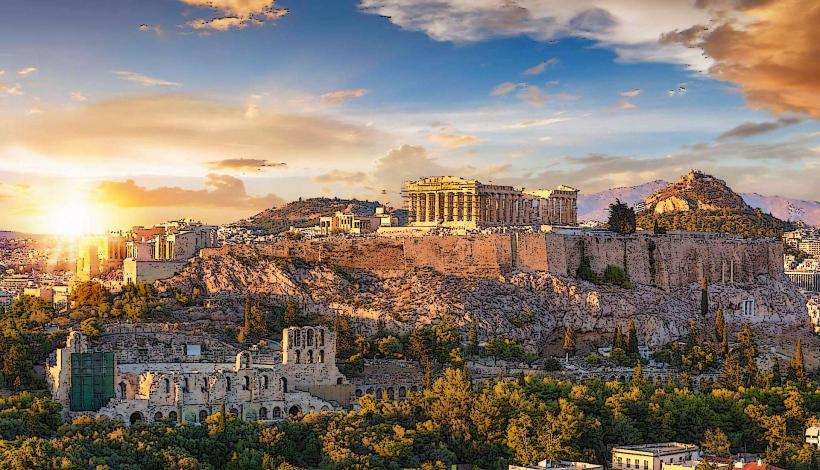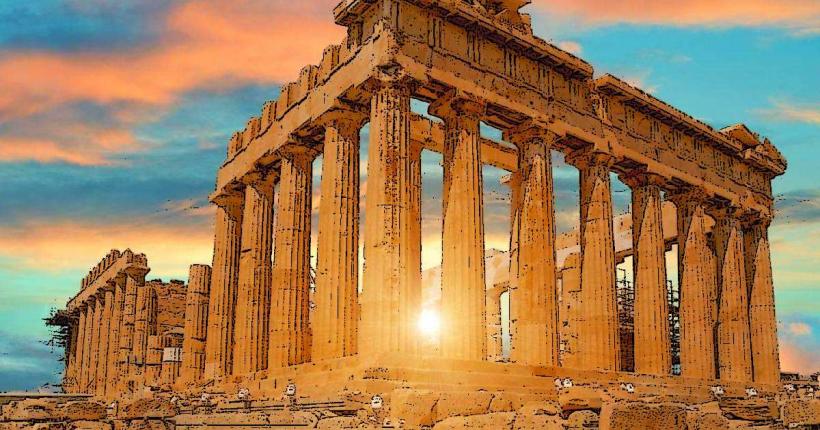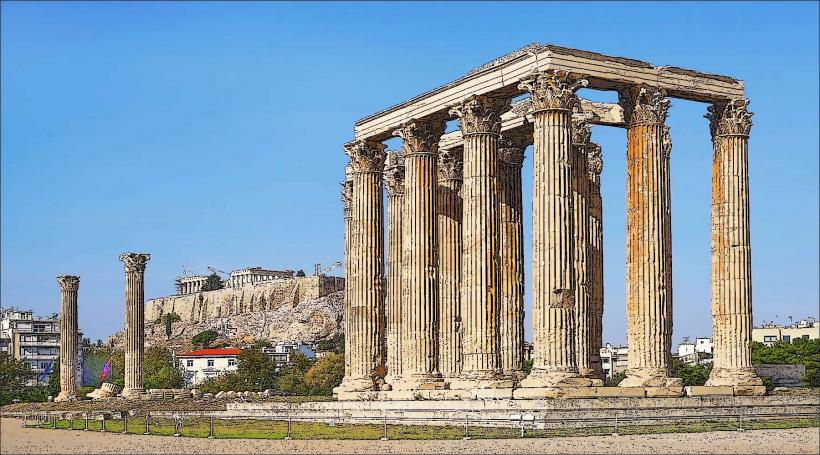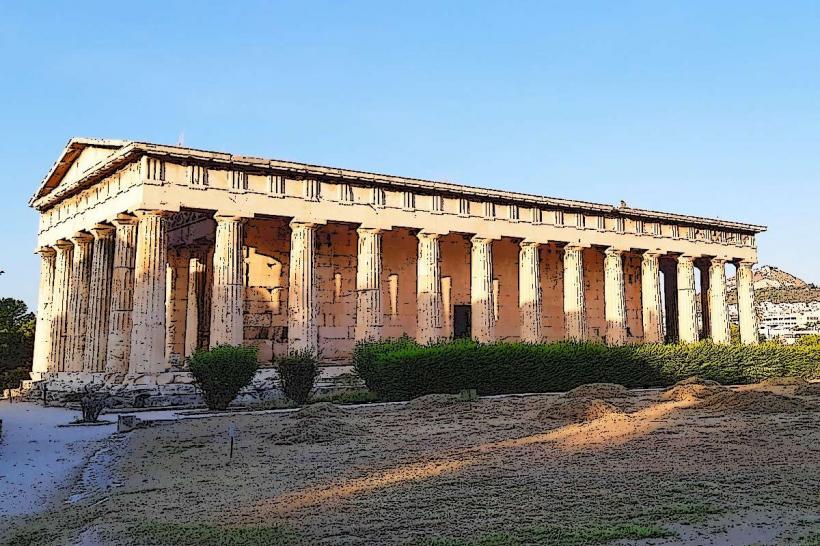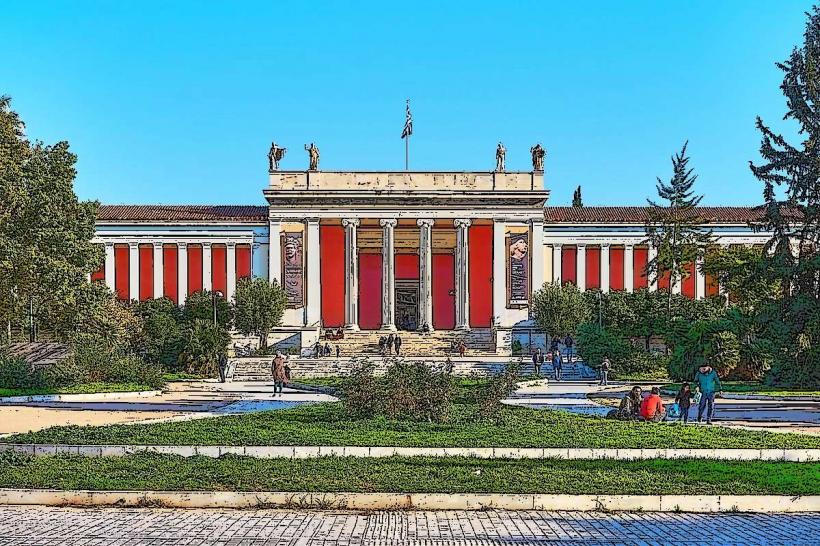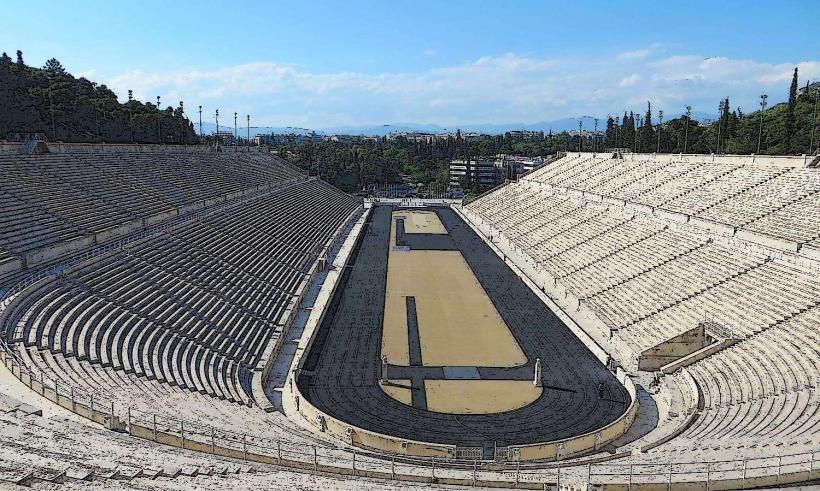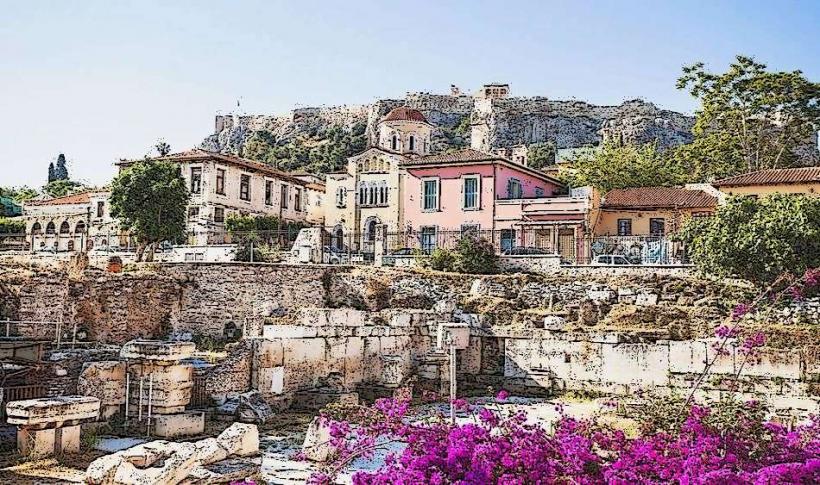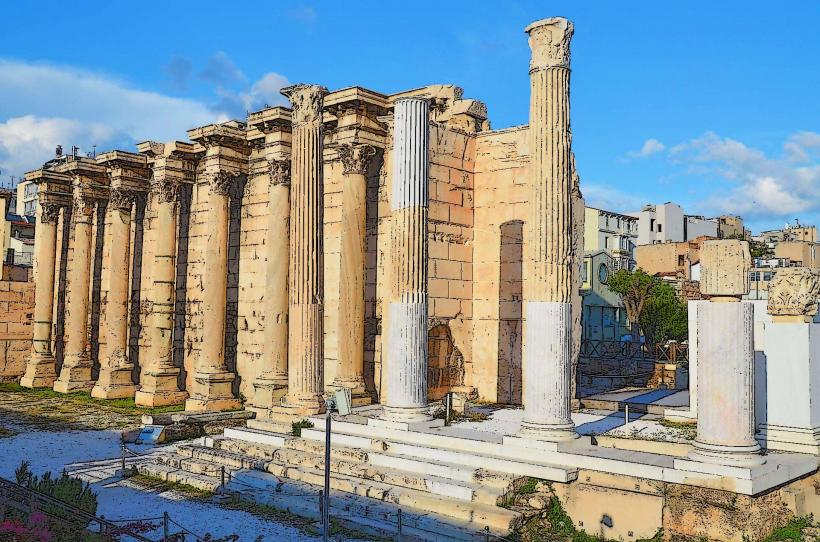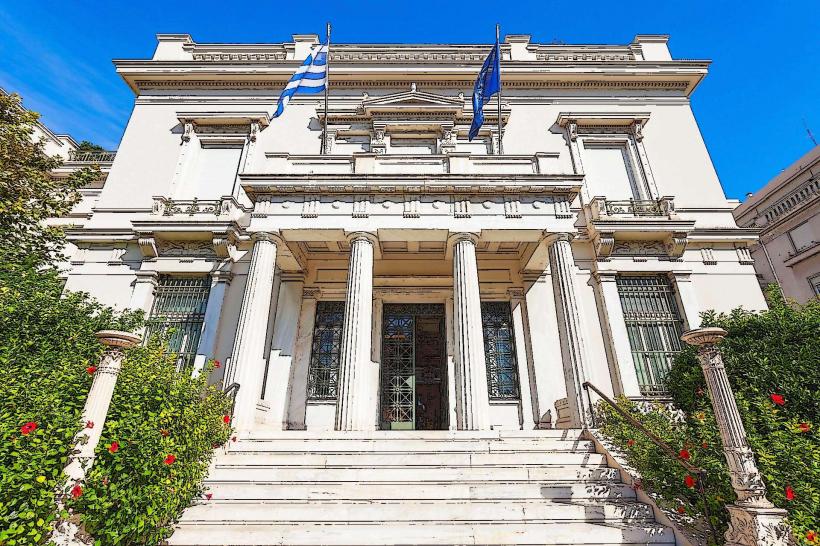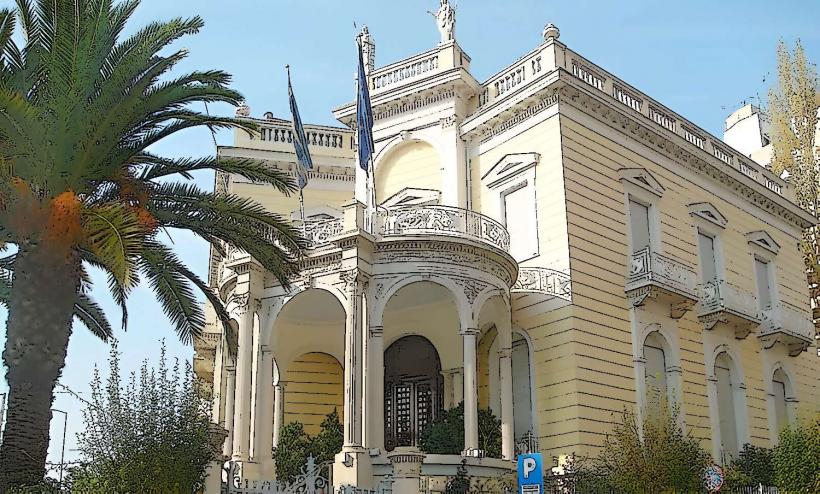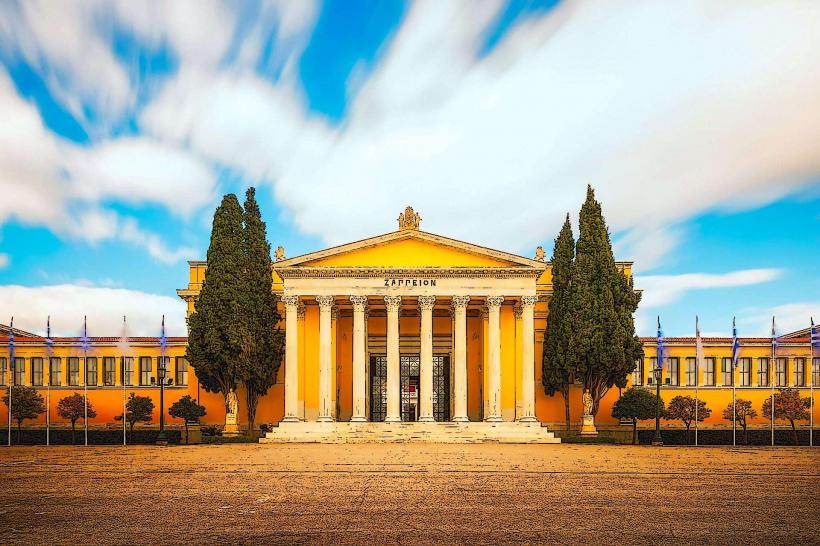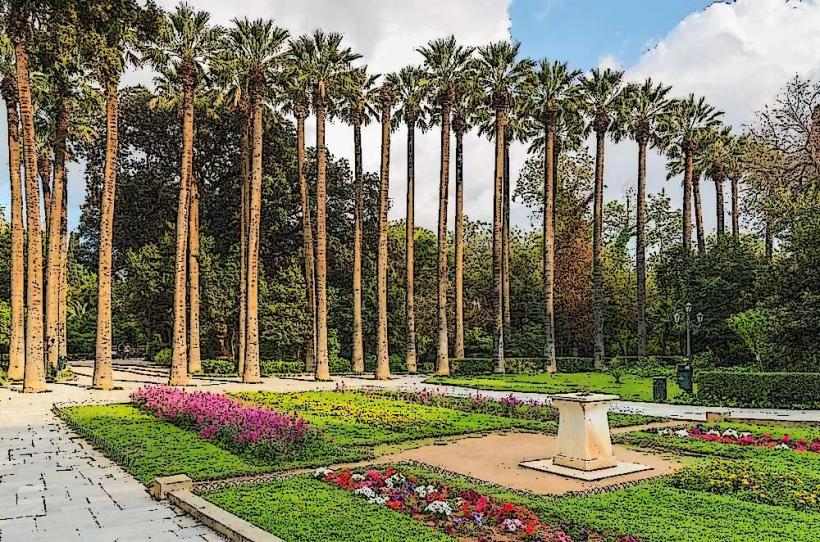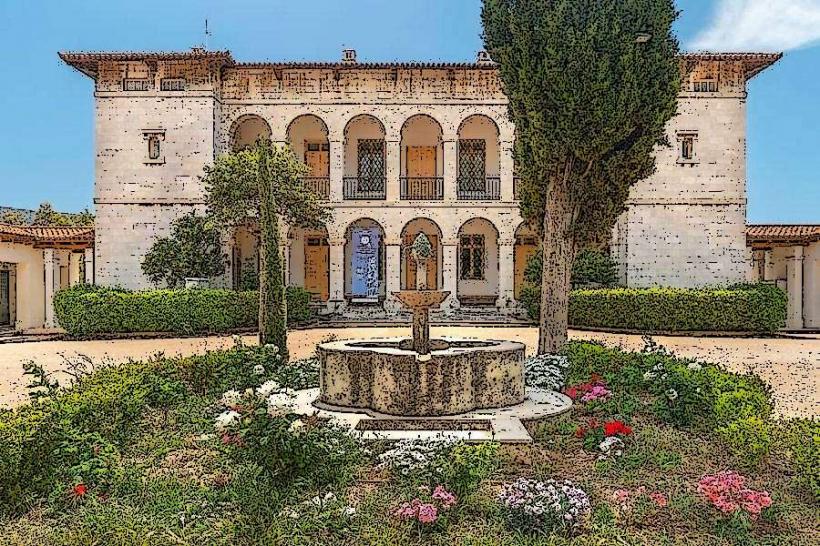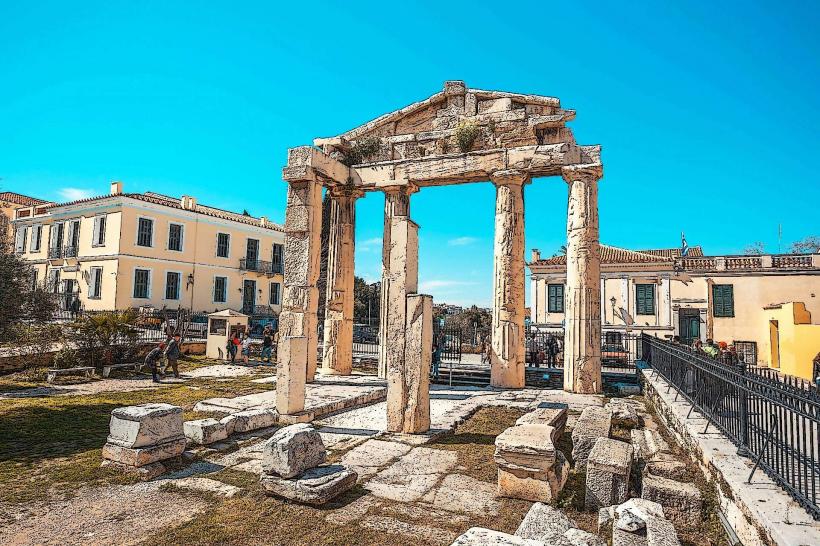Information
Landmark: Temple of HephaestusCity: Athens
Country: Greece
Continent: Europe
The Temple of Hephaestus, also known as the Hephaisteion, is an ancient Greek temple located in the Ancient Agora of Athens, near the western edge of the Acropolis. Dedicated to Hephaestus, the god of fire, metalworking, and craftsmanship, this temple is one of the best-preserved ancient Greek temples and offers a significant example of Doric architecture.
Historical Background:
- The Temple of Hephaestus was constructed around 449 BCE during the Classical period of ancient Greece. It was built in honor of Hephaestus and his wife Aphrodite (sometimes), but primarily as a place of worship for Hephaestus, the god of artisans and metalworkers.
- The temple was originally intended to house a statue of Hephaestus, and some accounts suggest it was built to commemorate the victory of the Athenians over the Persians in the Battle of Plataea in 479 BCE.
Architectural Features:
- The Temple of Hephaestus is a classic example of Doric order architecture, characterized by simple, sturdy columns with no bases and plain capitals. The temple’s six columns on the front and 13 columns on the sides form a peripteral design, meaning the columns completely surround the structure.
- The temple is notable for its well-preserved condition, partly due to its continuous use throughout history. It remained a functioning Christian church in the 7th century and was later converted into a Mosque in the 19th century before becoming a museum.
- The proportions of the temple are considered nearly perfect, and its dimensions are 13.72 meters by 31.77 meters. The temple’s columns stand about 10.5 meters tall.
Decorative Elements:
- The frieze of the temple is decorated with scenes of Greek mythology. The most famous of these is the depiction of the labors of Heracles, as well as the battle between the gods and giants, which was a popular theme in Greek art.
- The pediments (triangular spaces at the ends of the building) were originally adorned with sculptures depicting the gods and various mythological stories. These sculptural details are some of the best examples of Classical Greek relief art, though much of the original sculpture has been removed and is now housed in the National Archaeological Museum of Athens.
Function and Significance:
- The Temple of Hephaestus was dedicated to Hephaestus, who was revered as the patron god of metalworkers, blacksmiths, sculptors, and other craftsmen in ancient Athens. The temple’s location in the Ancient Agora, the heart of Athens’ civic and commercial life, reflected Hephaestus’s role in the daily workings of the city.
- The temple’s function was not only religious but also symbolic, representing the Athenians’ pride in their craftsmanship, art, and victory over the Persians. It was a center for worship and a place where metalworkers and artisans may have paid homage to their patron god.
Preservation:
- One of the temple’s most remarkable features is its excellent preservation. Unlike many other temples in Athens, which were damaged or destroyed over the centuries, the Temple of Hephaestus has survived largely intact. This is due to its adaptive reuse throughout history. In the Christian era, it became a church, and later, under Ottoman rule, it was converted into a mosque. These uses helped protect the structure from the more widespread destruction that befell many other ancient buildings in Athens.
Nearby Attractions:
Ancient Agora of Athens: The Temple of Hephaestus is located within the Ancient Agora, which was the commercial, political, and social heart of ancient Athens. Visitors can explore the ruins of the Agora, including the Stoa of Attalos, the Museum of the Ancient Agora, and various other archaeological sites.
Acropolis and Parthenon: Just a short walk away, the Acropolis with the Parthenon is one of Athens' most famous landmarks. The Temple of Hephaestus is located at the foot of the Acropolis and offers visitors an excellent opportunity to combine visits to multiple ancient sites.
Roman Agora and Tower of the Winds: A short distance from the Ancient Agora, the Roman Agora contains other important ancient structures, including the Tower of the Winds, an ancient clocktower.
Summary:
The Temple of Hephaestus is one of the best-preserved ancient temples in Athens, showcasing the refined elegance of Doric architecture. Built in the 5th century BCE, it was dedicated to Hephaestus, the Greek god of metalworkers and artisans. The temple is known for its proportions, well-preserved structure, and beautiful frieze, which illustrates scenes from Greek mythology. Unlike other ancient Greek temples, the Temple of Hephaestus has survived in remarkable condition due to its adaptive reuse throughout history. It stands today as a symbol of ancient Greek craftsmanship and devotion to the gods, providing a rich historical and cultural experience for visitors.

